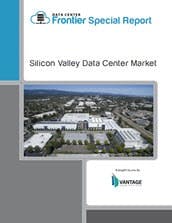CoreSite will acquire land to expand its growing campus in Santa Clara, Calif., the primary data center hub in Silicon Valley. The deal will allow the data center developer to continue to add capacity in one of the industry’s most important markets.
The company said Thursday that it has signed a contract on a two-acre parcel adjacent to its existing campus, and hopes to close the deal this fall. Once it takes ownership, CoreSite plans to knock down a 30,000 square foot existing building and build a 160,000 square foot data center that can support 18 megawatts of new capacity.
“We will continue our ongoing program to identify and acquire more expansion space in our markets to keep abreast of demand,” said CoreSite CEO Paul Szurek during the company’s earnings call last week.
This continues a trend in which existing buildings in Santa Clara are being bought and demolished to make way for data centers. Digital Realty, DuPont Fabros and Vantage Data Centers have also expanded by acquiring sites with existing structures and knocking them down to make way for server space. Both CoreSite and Vantage are building four-story data centers to get the most capacity possible out of their existing real estate.
Scarcity of Development Sites
Development sites have grown scarce in Santa Clara, which has emerged as the Data Center Capital of Silicon Valley due to competitive power pricing from the municipal utility, Silicon Valley Power, whose rates are significantly lower than the cost of power from PG&E in surrounding towns.
Data Center Frontier Special Report: The Silicon Valley Data Center Market. Download It Now.
That’s why there’s 34 data centers located in a three-and-a-half square mile area within Santa Clara, with more on the way.
As a result, Silicon Valley is one of the tightest markets in the country for data center real estate, with strong demand and limited supply.
“Inventory across the market remains constrained and pricing remains positive,” said Szurek. “New capacity is coming online though a substantial amount of it appears to be preleased and targeted to large wholesale. Despite the new supply, we expect the market to continue to be supply constrained in 2017, particularly as it relates to requirements for scalable network and interconnection dense deployments.”
It takes time to find development sites and gain the approvals to commence construction. CoreSite estimates that once it closes on the land, it will take at least 18 months from closing to complete the $118 million first phase of the building.
The CoreSite logo at the company campus in Santa Clara. (Photo: Rich Miller)
Santa Clara: Strong Demand, Constrained Supply
That’s why locating expansion space in Santa Clara was a strategic priority for CoreSite. No data center developer wants to run out of data center space in a hot market. CoreSite says it has 81,000 square feet of rentable space remaining on its Santa Clara campus, will gives it inventory to lease as it builds the new data center and seeks an anchor tenant.
“We follow a policy of seeking strategic tenants to pre-lease space in newly-developed data centers, and will continue that with the new developments as well,” said Szurek. “Developing in Santa Clara does take some time for entitlements, so there’s plenty of time during the entitlement and pre-construction process to seek those kind of anchor tenants without slowing down the schedule of construction.”
CoreSite isn’t alone in scouting for more space. CyrusOne said it is researching sites in Santa Clara and intends to enter the market, while DuPont Fabros has fully leased the third phase of its SC1 data center, which is nearing completion.
“Santa Clara is unique market,”said Chris Eldredge, the CEO of DuPont Fabros. “Land is scarce. I can tell you we’re actively in the market looking for land, but the price of land in that market has gone up significantly. If we could find something at the right price where we can get the right returns, we’ll be active in the market.”
The Silicon Valley area is home to nearly 2.6 million square feet (SF) of commissioned data center space, representing 343 megawatts (MW) of commissioned power, according to market research from datacenterHawk. That makes Silicon Valley the second-largest market for data center space in the U.S., trailing only Northern Virginia.







